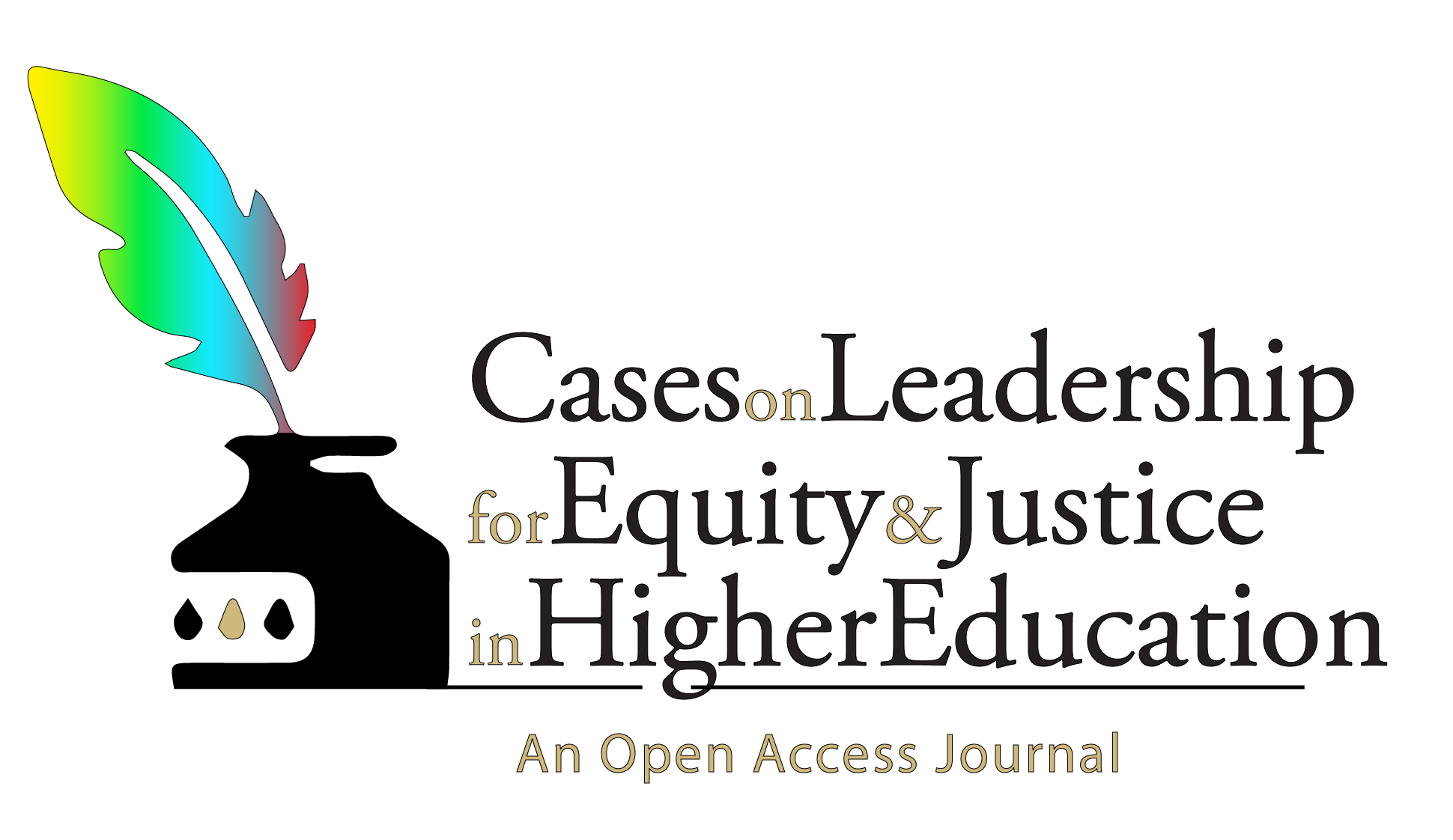Crystal Cyr, University of Colorado Boulder
Amaris Matos, Queensborough Community College
Ryan McCoy, Front Range Community College
Caitlin Serpa, Merced College
Kami Wolfe Schneider, University of Colorado Anschutz Medical Campus
Abstract
One of the challenges of navigating an increasingly diverse workplace is understanding the nuances of interactions with colleagues from different cultural and socio-economic backgrounds. Misunderstandings in communication can quickly create workplace tension and lead to legal liabilities for employers. This case study examines the conversation between two faculty members as one gives what is meant to be friendly advice for career advancement. The comment is reported as inappropriate, and Human Resources becomes involved. This case study can be used to spark discussion, examine intercultural interactions, and consider policy and procedure interpretation in academia.
Keywords: multicultural, communication, intercultural communication, workplace, Title IX, LGBTQIA+, dress code, professionalism, dialectical tensions, dyad, diversity
Cite as: Cyr, C., Matos, A., McCoy, R., Serpa, C., & Wolfe Schneider, K. (2022). Diversity and intercultural conflict in academia. Cases on Leadership for Equity and Justice in Higher Education, 2022(2).
Setting
Bowman University is a land grant university situated in the heart of a diverse metropolitan city. Its student population consists of 15,400 undergraduate students and 7,650 graduate students. Their renowned academic medical center attracts top applicants from across the country. Part of the school of medicine’s mission is to bring diversity, equity, and inclusion to the medical community to improve medical care for marginalized patients. A majority of full professors at the university identify as cisgender White males. Therefore, promotion and support of historically excluded faculty is a current focus for the School of Medicine. Bowman University has recently started organizing a more formal structure for affinity groups which have brought to attention some of the gaps in policy at the institution for handling issues like interpersonal conflict, microaggressions, and cultural and behavioral expectations, including dress codes.
Situation
Dr. Jones recently received a $1 million dollar grant for her research in endocrinology and is receiving international recognition for her work. She has been invited to give presentations at national and international conferences several times per year consistently for the last 10 years. Given the promotions matrix at her university and the institution’s new emphasis on inclusion efforts and promotion support for historically excluded faculty, she recognizes that the department may acknowledge her accomplishments and approve her application for promotion to full professor.
As Department Chair, Dr. Ito needs to forward the suggestion for her promotion consideration. Dr. Jones and Dr. Ito had a meeting scheduled to discuss Dr. Jones’s request for a full committee review for her promotion. Dr. Quinn participated in the meeting due to her close collaboration with Dr. Jones as her colleague and mentor, and in support of Dr. Jones’ fantastic achievements.
At the conclusion of the meeting, Drs. Jones and Quinn asked Dr. Ito for feedback, as next steps would require him to submit his recommendation to the performance review committee for promotion consideration. Dr. Ito responded verbally that Dr. Jones should dress more professionally if she wants to continue advancing her career. Dr. Jones asks Dr. Ito to explain what he means, and following a long pause, he states, “Your work is very strong, and you should lead with that. Your appearance should not distract from your work or bring attention to your body.” Dr. Ito left the meeting feeling like this was a thoughtful response acknowledging Dr. Jones’ outstanding work while providing constructive feedback regarding how her appearance may be perceived by others in the department.
Dr. Jones left the meeting feeling like Dr. Ito’s conduct was inappropriate, and recent communications from the university suggested faculty should reach out to human resources with any concerns regarding experiences of microaggressions. So, Dr. Jones contacted human resources and spoke with Ms. Klemmer, the director. Ms. Klemmer listened to Dr. Jones’s concerns and agreed to talk with Dr. Ito about his comment. Ms. Klemmer thought it would be best to have a one-on-one discussion with Dr. Ito about Dr. Jones’s concerns. Several days later, Dr. Ito returned to Dr. Jones’s office with a gift and apologized for his previous comment stating, “I was just trying to help you with your professionalism. I am disappointed you broke protocol when you didn’t like what I said.”
Since Dr. Jones did not receive any follow-up from human resources about her concern, it appeared they were not going to take any further action with Dr. Ito. Dr. Ito and Ms. Klemmer both thought the gift and apology sufficiently resolved the issue.
A few weeks later, Dr. Jones remained bothered by the incident and shared her concerns and frustrations with a colleague prior to their faculty senate meeting. The colleague informed Dr. Jones that they frequently see Ms. Klemmer at lunch with Dr. Ito, and it was during a recent lunch that they overheard Ms. Klemmer discussing Dr. Jones’s concerns with Dr. Ito. Dr. Jones was shocked to hear how informally the situation had been handled. Based on the seriousness of Dr. Jones’s allegations and the inaction of the human resources department to pursue a formal investigation, the colleague suggested that Dr. Jones meet with the university’s Title IX coordinator immediately to pursue legal action.
Key Players:
- Dr. Aaliyah Jones is an associate professor at Bowman University, holds a B.S. in biology from UCLA, an M.D. from Northwestern, an MPH from Columbia University, and has completed a highly competitive fellowship in endocrinology at the Mayo Clinic College of Medicine. Dr. Jones’s clinical research is focused on gender-affirming hormone therapy, and she leads her department in the growth of grant funding. Her research on feminizing hormone therapy is cited frequently in national and international journals. Dr. Jones is the University’s first tenure-track transgender faculty member and only the second Black faculty member in her department. She is an active member of two campus affinity groups: the LGBTQIA+ Faculty and Staff Association and the Black Faculty and Staff Association.
- Dr. Alan Ito is a full professor at Bowman University, and holds a B.S. in chemistry from Alfred State University and an M.D. from Adelphi University. Dr. Ito’s clinical research is focused on advanced stages of diabetes mellitus type II, and he leads a research team that is developing new ground-breaking treatments. Dr. Ito is an immigrant from Japan who moved to the United States as a young adult. He is the first Asian faculty member to serve as chairperson of the department of endocrinology. He has worked for the university for 23 years and has significant experience with the institution’s culture and promotion practices. As a physician in a leadership role, he practices and believes in conservative patient and peer-facing behaviors and appearances.
- Dr. Misha Quinn is a full professor at Bowman University and holds both a B.S. in biology and an M.D. from New York University. Dr. Quinn’s clinical research is focused on gender-affirming hormone therapy and her research and leadership in the field played a pivotal role in influencing Dr. Jones’ decision to join the faculty at Bowman University.
- Ms. Linda Klemmer has worked at Bowman University for 25 years. For the last nine years, Ms. Klemmer has served as the human resources director after holding multiple positions in the college, including as administrative assistant in the endocrinology department, where she organized many social events to encourage team building. Throughout her long career at Bowman, Ms. Klemmer has developed an extensive network and is known for her social capital and ability to leverage relationships to produce results. Some members of the college community are concerned about Ms. Klemmer’s personal relationships and how they might impede her ability to be impartial in personnel matters. Ms. Klemmer prides herself on her networking abilities, protection of the institution, knowledge of policies and procedures, and prioritization of time spent building and maintaining relationships with faculty members.
- Ms. Elaine Gupta has served as the Title IX Coordinator at Bowman University for six months. Although new to the University, Ms. Gupta previously served as the Title IX Coordinator for five years at a small liberal arts college.
Teaching Notes
Diversity Issues in Academia
As the workforce becomes increasingly more diverse, institutions like Bowman University are no exception to this change. Unfortunately, this diversification can also lead to conflict in the workplace, as colleagues attempt to navigate the complexities of interpersonal and intercultural communication. Additionally, archaic systems and norms of a college campus may conflate cultural differences, such as the definition and perception of faculty “professionalism.”
Faculty promotion and tenure policies have historically been vague and subjective at many institutions. As the first transgender tenure track faculty at Bowman University and the second Black faculty member in her department, Dr. Jones’s perspective is unique, but her experience with promotion barriers is consistent with other faculty from marginalized populations. Only 6% of associate professors in the U.S. identified as Black in Fall 2018, and that percentage drops to just 4% for full professors (National Center for Education Statistics, 2018). Although Title IX of the Education Amendments of 1972 protects transgender faculty from discrimination (U.S. Department of Education, 2021), issues of harassment and microaggressions are still prevalent for this marginalized community. In fact, the 2015 U.S. Transgender Survey revealed that 14% of Black participants experienced harassment in the workplace, and 47% of Black transgender women participants reported being fired, denied promotion, and/or not hired in the past year because of their transgender identities (National Center for Transgender Equality, 2015).
Seeking to Understand Through Theory
Relationships between colleagues can be challenging, and conflict can arise when factoring in individual ideologies and personal and organizational cultures. Thomas Kuhn’s concept of paradigm shift may be useful in understanding a pending change in an organization’s culture. Kuhn introduced and published this concept in his 1962 work The Structure of Scientific Revolutions (Kuhn & Hacking, 2012), and the theory has been utilized in numerous contexts and disciplines.
Leaders must also acknowledge that communication is fluid and unpredictable. Montgomery and Baxter (1998) view dyadic interpersonal interaction as a constant tug-of-war and theorizes that there are always dialectical tensions at play. Montgomery and Baxter (1998) suggest that the following tensions are interdependent, yet they mutually negate one another: connection vs. autonomy, predictability vs. novelty, and openness vs. closedness.
Anthropologist, Edward Hall, analyzed cultural differences impacting dyadic communication. His work has led many other theorists to use an intercultural lens that enables leaders to better understand another’s response and style of communication. Influenced by Hall’s approach to intercultural communication, Martin and Nakayama (1999) developed the Dialectics of Intercultural Communication theory to emphasize dyadic tensions during cross culture interactions including: communication context (high vs. low context cultures), individualism vs. collectivism, power distance, uncertainty avoidance, vertical vs. horizontal communication, expressive vs. reserved communication, and long-term vs. short-term orientation.
In an interview with aspiring leaders, Dr. Constacio Nakuma, provost and executive vice chancellor for academic and student affairs at the University of Colorado Denver articulated, “Don’t be offended by one’s comment. Try and understand where they are coming from” (C. Nakuma, personal communication, January 4, 2022). His statement accentuates the dynamic interpersonal relationships and challenges leaders are facing in the workplace. With the diversification of the workforce, effective leaders must be equipped with a magnitude of skills as well as a basic knowledge of applied leadership theory.
Teaching Activities and Discussion Questions
This case study is designed for use in graduate programs for higher education leadership and may be used to highlight numerous issues within academia, including but certainly not limited to: Title IX, faculty diversity, interpersonal and intercultural communication, conflict and personnel management, as well as campus culture and norms related to professionalism. Students are encouraged to approach the discussion questions and activities through the theoretical frameworks described above.
Small Group Discussion Questions
After reading the case study and using the theoretical frameworks provided above as the foundation, students break into three small groups. Each group is assigned one character to consider in their discussion, Dr. Jones, Dr. Ito, or Dr. Quinn. The group is provided their respective character’s description as well as a set of questions to prompt analysis and guide initial discussions from the perspective of their character.
Questions for Dr. Jones
- What are your considerations regarding the role of power dynamics for each character in this case study?
- What perceptions does Dr. Jones have regarding Human Resource’s management of her concern?
Questions for Dr. Ito
- Discuss Dr. Ito’s intent versus impact in his comments to Dr. Jones.
- What might Dr. Ito’s considerations have been during his “long pause?”
Questions for Dr. Quinn
- What issues of concern are possible for Dr. Quinn?
- What was and what could have been Dr. Quinn’s role and responsibility in the incident?
Character Discussion Debrief
Following the small group discussions, students return to the large group to debrief their conversations. The facilitator may choose an appropriate time to disclose the full identity of each character.
Questions for Large Group Debrief
- What assumptions did you make regarding the interactions between Dr. Jones and Dr. Ito? Ms. Klemmer and Dr. Ito?
- What are the issues of concern?
- What are your reactions after learning more about the character identities? Does this additional knowledge change your reactions? If so, why? If not, why not?
- What types of power and privilege are represented in this case study?
- How might factors such as geographical location and/or organizational culture of the institution influence this case?
- How did individual/organizational culture influence character actions and motivations?
- What other factors about the characters might have contributed to their choices and the context of their communication and/or interpretations?
- How might each character have accomplished their goals in a different manner but with better results?
- What protocols should have been considered and by whom?
- How did aspects of this case hinder or help each character work and live to their greatest potential and contribution to the institution?
- What are your recommended next steps?
Supplemental Role Play Activity
After Dr. Jones notified the Title IX coordinator of her concerns, a meeting was convened to address the situation. In small groups, students role play the meeting with the Title IX coordinator and should be prepared to summarize the following:
- Who attends the meeting?
- What are the issues of concern?
- What are the possible resolutions?
Supplemental Writing Assignment
Given Thomas Kuhn’s paradigm shift theory and the context for the conflicts in this case, discuss how the dynamics of the case fit within Kuhn’s theoretical framework.
References
Kuhn, T. S., & Hacking, I. (2012). The structure of scientific revolutions(Fourth edition). The University of Chicago Press.
Martin, J., & Nakayama, T. (2016). Culture and communication/intercultural communication dialectics. In Communication in the real world: An introduction to communication studies. University of Minnesota Libraries Publishing edition. https://textbooks.whatcom.edu/duttoncmst101/chapter/intercultural-communication/#footnote-99-1
Montgomery, B. M., & Baxter, L. A. (1998). Dialectical approaches to studying personal relationships. L. Erlbaum Associates.
Nakuma, C. (2022, January 4). Interview. Leadership in education E01.
National Center for Education Statistics. (2018). Race/ethnicity of college faculty. Fast Facts; National Center for Education Statistics. https://nces.ed.gov/fastfacts/display.asp?id=61
National Center for Transgender Equality. (2015). U.S. Transgender Survey Report on the Experiences of Black Respondents (p. 28). https://transequality.org/sites/default/files/docs/usts/USTSBlackRespondentsReport-Nov17.pdf
U.S. Department of Education. (2021, June 16). U.S. Department of Education confirms Title IX protects students from discrimination based on sexual orientation and gender identity[Press Release]. https://www.ed.gov/news/press-releases/us-department-education-confirms-title-ix-protects-students-discrimination-based-sexual-orientation-and-gender-identity
About the Authors
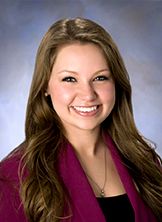
Crystal Cyr serves as the Director of Assessment, Research, and Data Analytics at the University of Colorado Boulder. There, she leads strategic planning, outcomes-based assessment practices, and research initiatives for the Division of Student Affairs. She is currently a doctoral student at the University of Colorado Denver-Anschutz School of Education and Human Development with a focus on Educational Equity in Higher Education.
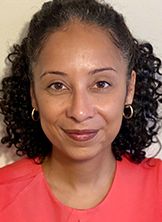
Amaris S. Matos is the Assistant Vice President for Equity, Inclusion, and Belonging at Queensborough Community College, a part of The City University of New York. In this role, Amaris provides strategic leadership for the development, implementation, and maintenance of a comprehensive and integrated framework for equity at Queensborough.

Ryan McCoy holds both a Master of Arts and Bachelor of Arts in Communication from the University of Northern Colorado. In addition to serving as the Executive Director for the FRCC Foundation, Ryan is an Adjunct Professor of Communication. Ryan has proudly served FRCC over the past 8 years and has worked in the Foundation for over 4 years. In addition to his work at Front Range Community College, Ryan is an elected official who serves on the Adams50 School Board of Education. He is a 5th generation Coloradan and is dedicated to education. Ryan resides in Westminster with his wife Anna and his two children, Ida and Jameson.
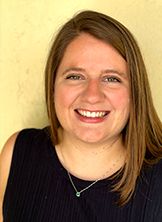
Caitlin Serpa is currently the only tenured professor of Economics at Merced College, a community college located in the Central Vally of California. When she is not in the classroom or as an advisor for Phi Theta Kappa, Caitlin serves her community, teaching violin and viola at her private studio of 12 years. She also loves to travel abroad to bring the world back to her classrooms. Caitlin received her undergraduate and master’s degrees in Business Economics from the University of California, Santa Barbara. She is pursuing her Educational Doctorate at the University of Colorado, Denver.
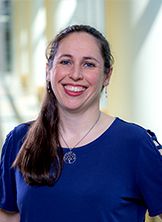
Kami Wolfe Schneider, MS, CGC is a Senior Instructor for the University of Colorado working as a pediatric cancer genetic counselor in a clinic she initiated and developed at Children's Hospital Colorado. Kami is passionate about reducing health disparities and increasing diversity in the profession of genetic counseling with leadership, education, and research. She is currently a doctoral candidate in Education at the University of Colorado Denver in the Leadership for Educational Equity in Higher Education program.
